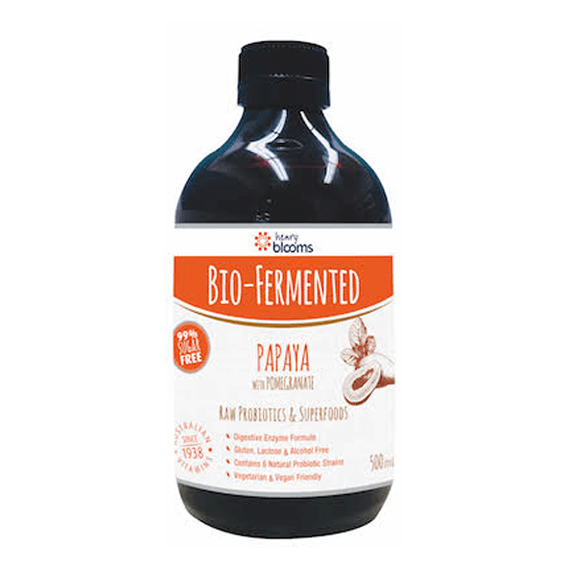
29 Aug 2019
How Some FODMAP-friendly Fruits can Actually Aid Digestion Spotlight on Papaya
Papayas are delicious coral coloured melon-looking fruits grow in tropical climates. Another variety is Paw Paw, which is slightly more yellow in colour, but which shares a very similar nutritional profile to papaya. Their sweet taste, vibrant colour, and buttery taste make them one of the most delicious of the FODMAP-friendly fruit range. Nowadays, you can find Papaya at most mainstream supermarkets nearly year-round.sandály na klínku černé
vagabond tricouri barbati
gucci genser
nike genser
calvin klein ledvinka
rolex de diamantes
كالفن كلاين احذية رجالية
kitten heel flip flops black
قميص وبنطلون ضد الحريق
قميص اتحاد العاصمة الجديد
It’s not just the taste that’s got this FODMAP-friendly vegan pumping over papaya. The possible health benefitsof consuming this fruit are countless, and include a reduced risk of heart disease, diabetes, cancer, improved digestion, blood glucose control in people with diabetes, lower blood pressure, and faster wound healing.
So, here’s the thing about fruit and fruit extracts. There is a common belief that while being on a low FODMAP elimination diet you must avoid ALL fruit (since fructose is right up there with Lucifer himself … or so we are led to believe by self-qualified bloggers out there). The answer couldn’t be further from the truth! FODMAP-friendlyserving sizes of low FODMAP fruit will be your best friend during the elimination phase and beyond. Why? The low FODMAP diet tends to be lower in fibre and restricts preboitics (the food for the healthy gut bacteria we all have) – both of which are essential for proper digestive health. To stop things, erm, getting blocked up, continuing to consume fruit in “safe” quantities during the low FODMAP diet is essential.
In fact, some fruits, like my beloved Papaya, can actually aid in digestion!
Papayas contain an enzyme called papain that aids digestion, particularly that of protein which is one of the most difficult nutrients for our body to break down (hence the whole ‘keeping you fuller for longer thing). Papaya is also high in fibre and water content, both of which help to prevent constipation and promote regularity and a healthy digestive tract.
Choline is a very important and versatile nutrient found in papayas that aids our bodies in sleep, muscle movement, learning, and memory. Choline also helps to maintain the structure of cellular membranes, aids in the transmission of nerve impulses, assists in the absorption of fat, and reduces chronic inflammation. In this way, consuming Papaya after a bout of digestive upset can help alleviate your symptoms by reducing gastrointestinal inflammation.
While we often associate vitamin C with citrus fruits, one single medium papaya provides a whopping 224% of the recommended daily intake! Papayas are also a good source of: vitamin A, pantothenic acid, magnesium, and folate … so good for expecting mama bears! Finally, they contain lycopene, which you may have heard, is the powerful antioxidant attributed to many of the health benefits of tomatoes and the Mediterranean diet.
While I personally love Papaya, the taste is quite strong and certainly not for everyone. Further, a big downside to this superfruit is it tends to go too ripe too quickly. Remember, the riper fruit gets, the higher its fructose content, and the more likely it is to cause digestive distress. Enter Henry Bloom’s Bio-Fermented Papaya with Pomegranate probiotic drink. I have been using this supplement religiously with clients, particularly younger ones, as a way of incorporating some all-important gut-soothing nutrients into their daily routine. The feedback has been fantastic!
The unique bio-fermentation process used to create this supplement creates a powerful bio-active biofermented concentrate, generating an abundance of prebiotics and six strains of gut-loving probiotics (for the nerds out there: Lactobacillus acidophilus, Lactobacillus casei, Lactobacillus plantarum, Lactobacillus bulgaricus, Bifidobacterium lactis and Saccharomyces cerevisiae boulardii (these are the probiotic strains with the most scientific evidence backing them).
This five-stage probiotic/biofermentation procedure offers beneficial enzymes, B vitamins and omega-3 fatty acids as well as providing approximately six billion units of good bacteria in each 15 ml serve. Yup 15ml, that’s all you need! The addition of probiotics will create a healthy environment in the gut by promoting good intestinal flora/bacteria that will help combat harmful bacteria (the stuff that makes us sick!). Probiotics may also boost the immune system– so a double whammy to fighting off illness.
I recommend consuming at least 15ml daily. Fitting it into your daily routine couldn’t be easier. Some tips include drinking it straight as a shot (bottoms up!) or mixed into sparkling water (great for the little ones). It’s also an easy addition to your low FODMAP juices or smoothies, and if you freeze these into popsicles during summer it’ll add a zing to your treat!
So, to sum up, the key takeaway messages from this post are:
- Don’t fear fruit (yup, even on the low FODMAP diet)!
- Some fruits can actually aid digestion
- PAPAYA PAPAYA PAPAYA
- PAPAYA + probiotics (as in Henry Bloom’s Bio-Fermented Papaya with Pomegranate drink) = double whammy!
